Politics
Indonesia’s first naval drills with Russia get under way
Published
5 months agoon
By
Ekwutos BlogIndonesia’s first naval drills with Russia get under way
Analysts say the joint exercises signal the start of Prabowo Subianto’s foreign policy shift, seeking to boost alliances with major powers
Indonesia and Russia kicked off their first joint naval drills on Monday, as the Southeast Asian archipelago’s new leader seeks to boost ties with Moscow.
The region’s biggest economy maintains a neutral foreign policy, refusing to take sides in the Ukraine conflict or in great power competition between Washington and Beijing.
But newly inaugurated Indonesian President Prabowo Subianto has pledged to be bolder on the world stage and in July visited Moscow for talks with Vladimir Putin.
Do you have questions about the biggest topics and trends from around the world? Get the answers with SCMP Knowledge, our new platform of curated content with explainers, FAQs, analyses and infographics brought to you by our award-winning team.
The five-day drills will take place in two phases at a naval base in Surabaya and in the Java Sea.
Russia has sent three corvette class warships, a medium tanker ship, a military helicopter, and a tug boat, the Indonesian navy said in a statement last week.
Local broadcasters showed Russian ships calling into port and being welcomed by an Indonesian marching band on Sunday ahead of the drills.
Analysts say the joint exercises signal Prabowo is beginning a significant foreign policy shift, pledging to boost Jakarta’s alliances with major powers.
During a visit to the Kremlin in July, Prabowo – a 73-year-old ex-general – said he wanted to deepen the relationship with Russia.
“We consider Russia as a great friend and I would like to continue to maintain and enhance this relationship,” Prabowo told Putin.
The Association of Southeast Asian Nations bloc, which Indonesia is a member of, held joint exercises with Russia in 2021, but Jakarta had never held drills alone with Moscow before this week.
Jakarta has billion-dollar trade ties with Moscow, yet major arms imports have stalled in recent years after Russia seized Crimea in 2014 and launched its full-scale military offensive on Ukraine in 2022.
Still, since becoming defence minister in 2019 Prabowo has kept alive a US$1.1 billion Russian fighter jet deal agreed a year earlier, despite the reported threat of US sanctions.
More Articles from SCMP
Siobhan Haughey hails Hong Kong’s young swimmers, who are ‘catching up’ with big nations
Lucas Tam Ho-him’s top pick: Journey to the Centre of the Earth by Jules Verne
Swiss university’s not-so-neutral policy to restrict applications from Chinese students
China rags-to-riches narratives spotlight first woman billionaire and peasant turned tycoon
You may like
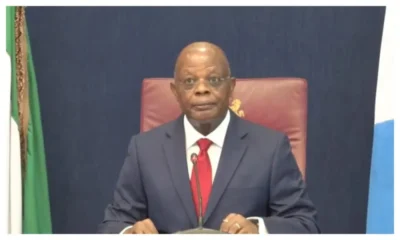

Despite criticism, Ibas swears in sole administrators for Rivers LGAs


Kano lawyer petitions Tinubu over ‘politically motivated’ police invitation of Emir Sanusi
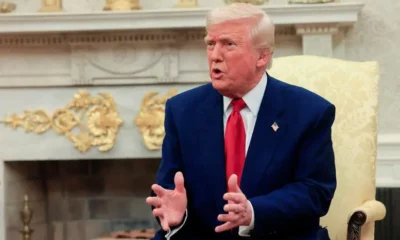

U.S withdraws military aid from Niger, redirects to Côte d’Ivoire, Benin, Ghana
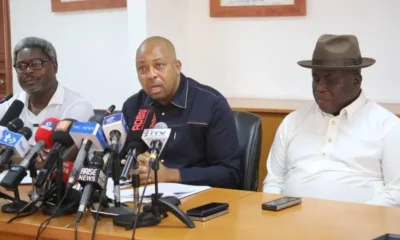

FCT Minister rolls out major land administration reforms, introduces strict timelines for allottees
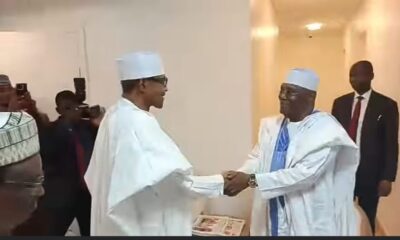

Atiku, El-Rufai, Tambuwal visit Buhari in Kaduna


Rivers govt debunks civil service recruitment announcement
Politics
Atiku, El-Rufai, Tambuwal visit Buhari in Kaduna
Published
1 hour agoon
April 11, 2025By
Ekwutos Blog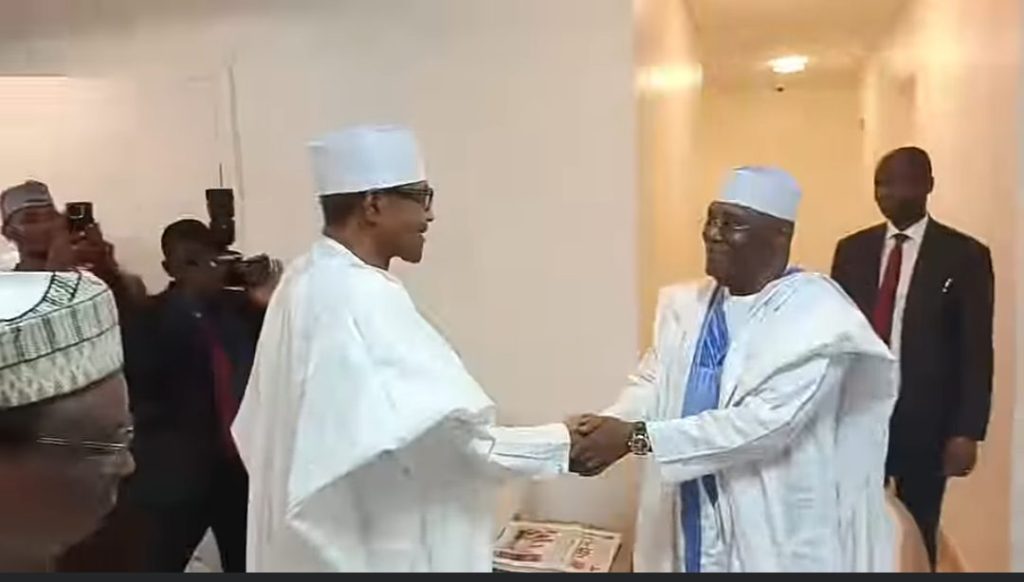
Former Vice President and 2023 PDP presidential candidate, Atiku Abubakar, has visited former President Muhammadu Buhari at his residence in Kaduna.
The visit, which also included former governors Aminu Waziri Tambuwal (Sokoto) and Nasir El-Rufa’i (Kaduna), was captured in a video sighted on the Facebook page of Atiku Abubakar.
Although the specific purpose of the visit was not disclosed, Atiku described it as a “post-Sallah visit.”
In the post, Atiku wrote, “As the Waziri Adamawa, I was obligated to be in Adamawa during the Sallah celebrations. I held forth for the Lamido Fombina (Adamawa) in some of the activities of the Sallah celebrations. Today, I had the opportunity to pay a post-Sallah visit to His Excellency, Muhammadu Buhari, President of the Federal Republic of Nigeria, 2015-2023. It was a wonderful time with him. As usual, he cracked me up (to the extent that my ribs were hurting) with his peculiar humour. -AA”
The visit comes after governors from the All Progressives Congress (APC) paid a similar visit to Buhari in Kaduna last week, amid growing speculation about political realignments and possible coalitions ahead of the 2027 elections.
Politics
Rivers govt debunks civil service recruitment announcement
Published
1 hour agoon
April 11, 2025By
Ekwutos Blog
Rivers State Government has refuted a widely circulated social media announcement alleging that the state’s Sole Administrator, retired Vice Admiral Ibok-Ete Ekwe Ibas, approved the recruitment of 10,000 “graduates and non-graduates” into the Rivers State civil service.
On Thursday, social media platform “Facebook”, was flooded with the purported government notice, which falsely claimed that the recruitment exercise had been sanctioned.
The statement was reported to have been signed by the Secretary to the State Government, Professor Ibibia Lucky Worika.
However, in a statement issued by Mrs. Inyingi S. I. Brown, Acting Head of the Rivers State Civil Service, the government described the information as entirely untrue and urged the public to disregard it.
The statement also clarified that any official communication on civil service recruitment would come from the Rivers State Civil Service Commission at the appropriate time.
The statement read, “The Office of the Administrator of Rivers State wishes to disclaim a purported Special Government Announcement spreading round on social media and other platforms stating that His Excellency, The Administrator of Rivers State, Vice Admiral (Rtd) Ibok-Ete Ekwe Ibas CFR, has approved the recruitment of 10,000 qualified graduates and non graduates into the Rivers State civil service and that the recruitment portal shall be opened for application midnight of Sunday 13/04/2025.
“The statement is claimed to have been signed by the Secretary to the State Government, Professor Ibibia Lucky Worika.
“We wish to categorically inform the people of Rivers State and the general public that this is false and ask that this fake announcement be ignored.
“Appropriate information will be released by the Rivers State Civil Service Commission in due time.”
Politics
APC Can’t Take Anambra Like Edo, Imo and Kogi— Gov Chukwuma Soludo
Published
9 hours agoon
April 11, 2025By
Ekwutos Blog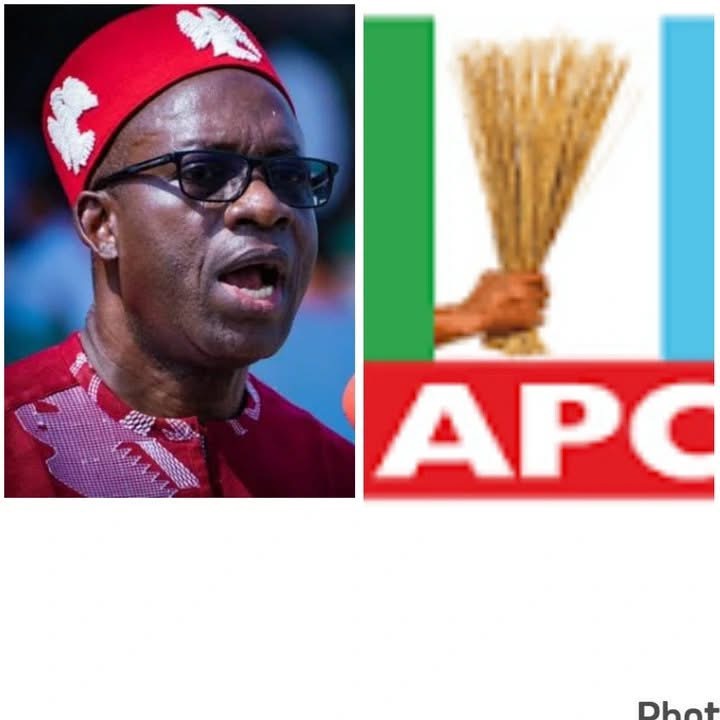
Governor Charles Soludo has dismissed the chances of the All Progressives Congress in the upcoming November 8 Anambra governorship election, declaring that the party lacks the grassroots presence needed to win in the state.
Soludo, who is seeking re-election under the All Progressives Grand Alliance, made the statement during an interview on Arise Television’s Prime Time.
The National Chairman of the ruling APC, Abdullahi Ganduje, had repeatedly stated that the APC had its eyes on southern states under the opposition control, such as Edo, Anambra, Osun and Oyo states.
But the governor stated that APC was able to prevail in states like kogi and imo because the incumbent governor’s got reelected, and they prevailed in Edo because they had grassroot structure.

Despite criticism, Ibas swears in sole administrators for Rivers LGAs

Kano lawyer petitions Tinubu over ‘politically motivated’ police invitation of Emir Sanusi

U.S withdraws military aid from Niger, redirects to Côte d’Ivoire, Benin, Ghana
Trending

 Trending6 months ago
Trending6 months agoNYA demands release of ‘abducted’ Imo chairman, preaches good governance
- Business6 months ago
US court acquits Air Peace boss, slams Mayfield $4000 fine

 Politics6 months ago
Politics6 months agoMexico’s new president causes concern just weeks before the US elections
- Entertainment6 months ago
Bobrisky transferred from Immigration to FCID, spends night behind bars
- Entertainment6 months ago
Bobrisky falls ill in police custody, rushed to hospital

 Politics6 months ago
Politics6 months agoRussia bans imports of agro-products from Kazakhstan after refusal to join BRICS

 Politics6 months ago
Politics6 months agoPutin invites 20 world leaders
- Politics1 year ago
Nigerian Senate passes Bill seeking the establishment of the South East Development Commission.

